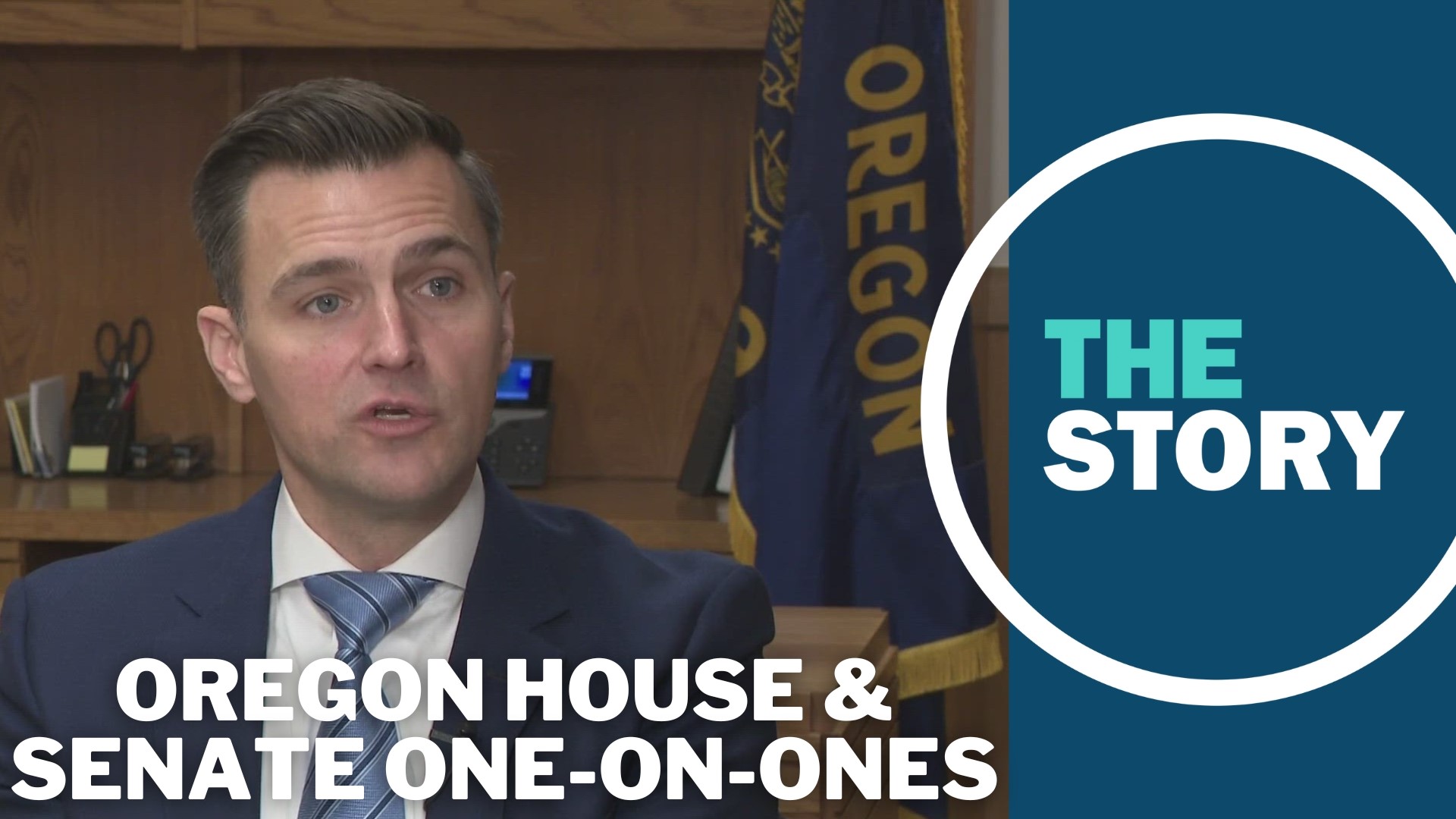SALEM, Ore. — Oregon's 2024 legislative session got underway Monday morning and will run through March 10. It's a short session, but both political parties have sketched out an ambitious agenda for the next 35 days, taking aim at big state challenges like housing, homelessness and the drug crisis, as well as a host of smaller issues.
Here are the top five things to know about what's happening in Salem:
Housing and addiction
Housing is the top issue in the session, and Gov. Tina Kotek said last week that she's focusing all her efforts on one bill: Senate Bill 1537, a $500 million investment package to fund infrastructure and site acquisition. The proposal would also create a new state level housing production office and give cities a one-time tool to expand their urban growth boundaries.
Kotek said she's also requested $65 million to make sure existing homeless shelters can keep operating, and $35 million to invest in homelessness prevention measures.
The other big priority is the addiction crisis, and more specifically Oregon's beleaguered Measure 110. There's a consensus among most lawmakers that drugs need to be re-criminalized in order to help compel people into treatment, though Republicans and Democrats differ on the the proposed severity of the infraction — Democrats want simple possession to become a Class C misdemeanor, while Republicans are pushing for the higher-level Class A.
Both parties have also expressed a desire to improve access to treatment options for people suffering from drug addiction.
The rest of the agenda
Housing and drug policy are unquestionably the top priorities, but more than 150 bills have been introduced in total, delving into many other topics. House Speaker Dan Rayfield also mentioned a $50 million investment for Oregon's semiconductor industry last week, and Senate President Rob Wagner spoke about wanting to bolster the state's education system.
Both parties have also expressed goals of tackling the rising cost of living for Oregonians and reducing crime.
Some of the other bills introduced in the short session include a measure to require school district boards and other public education governing bodies to live stream their meetings, a bill asking the Oregon Department of Transportation to study extending the WES commuter line to Salem and a bill aimed at requiring electronics and equipment manufacturers to make it easier for consumers to repair their own devices.
What's waiting for 2025
The nature of the short session means that some topics will have to be left on the sidelines until next year. Rayfield and House Minority Leader Jeff Helfrich both pointed to transportation and tolling as the biggest example last week.
There also won't be a full budget process, because Oregon operates on a biennial budget cycle where legislature only drafts budgets during the long sessions every two years.
The short session does give lawmakers the opportunity to allocate new funding and adjust laws, but they won't know precisely how much money they've got to work with until the legislative revenue forecast arrives on Wednesday.
The walkout question
The start of the session comes just days after the Oregon Supreme Court issued a ruling upholding Measure 113, which bans lawmakers from holding office in the following term if they rack up more than 10 unexcused absences in a single legislative session. Ten senators hit that limit during last year's six-week Republican-led walkout.
Secretary of State LaVonne Griffin-Valade declared last year that those lawmakers would be barred from running for reelection in 2024. Republicans challenged the decision, but the Oregon Supreme Court sided with Griffin-Valade's interpretation. Speaking to reporters a day before the ruling was released, Senate Minority Leader Tim Knopp said that if Republicans lost, they would "literally have no reason to show up," and he refused to rule out another walkout.
That doesn't guarantee that a walkout will happen, however, especially since Democrats and Republicans appeared to agree that the housing and addiction crises should be the two highest priorities for the session. Knopp also said that among the issues on the docket for this particular session, there aren't a lot of topics where the parties are very far apart.
RELATED: Oregon Supreme Court upholds Measure 113, disqualifies Republican senators who walked out last year
Ongoing construction
The Oregon Capitol building is in the midst of a major renovation project, which means some parts of the building are closed to the public, including the rotunda, the main entrance from Court Street and most of the rest of the central northern wing of the buildings — though the House and Senate chambers themselves are still available for lawmakers.
Visitors can use the main south entrance from State Street to access the galleria, hearing rooms and stairs to the member offices. The House and Senate galleries are still open to the public, accessed via the east and west wings of the building rather than the central staircases, although the northern half of each gallery will be closed off due to construction.
The ongoing project will upgrade the building to allow it to survive a major Cascadia Megaquake. The central portion of the building is scheduled to reopen in 2025.

